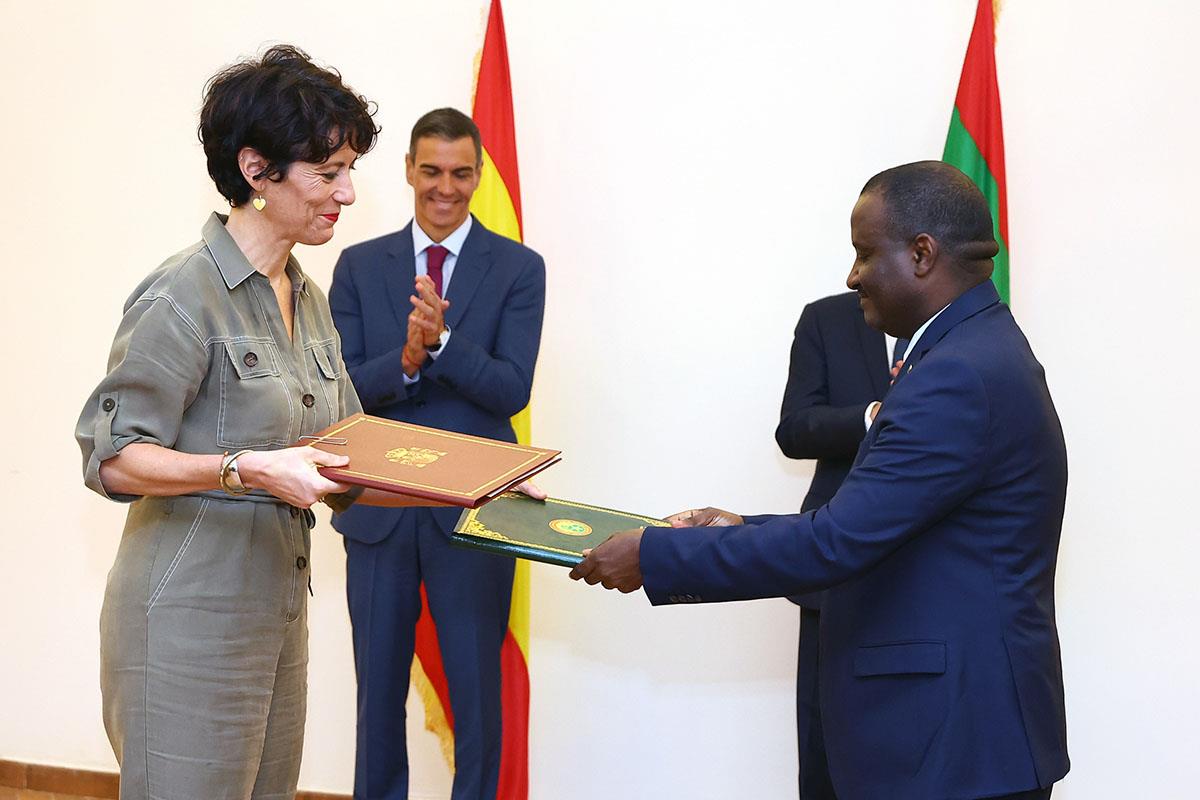Spain will collaborate with Mauritania in the field of social security to strengthen the protection of migrant workers.
News - 2025.7.16
 The Minister for Inclusion, Social Security and Migration, Elma Saiz, with her Mauritanian counterpart after signing the declaration. (Pool Moncloa/Fernando Calvo)
The Minister for Inclusion, Social Security and Migration, Elma Saiz, with her Mauritanian counterpart after signing the declaration. (Pool Moncloa/Fernando Calvo)
In this context, the Minister signed a Declaration of Intent with Mauritania on Social Security, which aims to establish a framework for technical and institutional cooperation to strengthen the social protection of workers in transit between our countries.
This collaboration will have an initial duration of two years and will allow for the exchange of knowledge, the strengthening of institutional capacities and the design of a joint activity plan. "The Ministry has offered three specific technical assistance programmes aimed at strengthening the Directorate of Benefits of the Mauritanian National Social Security Fund. We are already in the process of selecting experts, with the aim of starting the projects in September", the minister explained.
Around 10,000 Mauritanians live in Spain, and Mauritania is an important trading partner for Spain in the region. A total of 440 Spanish companies regularly export to Mauritania and more than 100 Mauritanian companies regularly export to Spain.
Migration
This Declaration of Intent on Social Security matters adds to an ambitious bilateral agenda, a key dimension of which is migration.
"In August 2024, we signed a Memorandum of Understanding with the Mauritanian government to open new avenues for circular migration," recalls Elma Saiz. "Less than a year later, just a few days ago, the selection process for the first 50 Mauritanian workers took place. They will join the 2025-2026 agricultural campaign in the province of Huelva in November, within the framework of the GECCO recruitment at source programme".
The 50 Mauritanian workers will receive prior training in labour rights and duties, which will be provided by the International Organisation for Migration (IOM) during the month of September. "This ensures that workers travel informed, protected and supported".
People posted to Spain as part of the programmes for selecting workers in their countries of origin for fixed-term jobs return to their communities once these jobs are finished.
"We believe that we are on the right path: legal migration, based on institutional cooperation, shared responsibility and respect for people's dignity," said Saiz.
Thanks to the reform of the regulation on foreigners, the circular migration procedures under which such programmes are registered have been simplified. Specifically, these persons can be granted, through a permanent contract, an authorisation of up to four years' duration, which allows them to work for a maximum of 9 months per year. This allows them to travel to Spain every year to work, and to return to their country of origin after that period with guarantees set out in their contract that they will be called up again for the following season. Prior to the regulatory reform, these projects had to be processed every year, and now they are processed once every four years, significantly reducing the administrative burdens for companies and for migrant workers.
"We are working together with countries of origin to promote real alternatives to irregular migration, to create economic opportunities in the country of origin, to improve training and to protect the rights of migrants.
In 2025, the countries participating in the Collective Management of Recruitment at Source are Argentina, Bolivia, Chile, Colombia, Dominican Republic, Ecuador, Gambia, Guatemala, Honduras, India, Mauritania, Mexico, Morocco, Peru, Senegal, Uruguay, El Salvador.
Non official translation.




